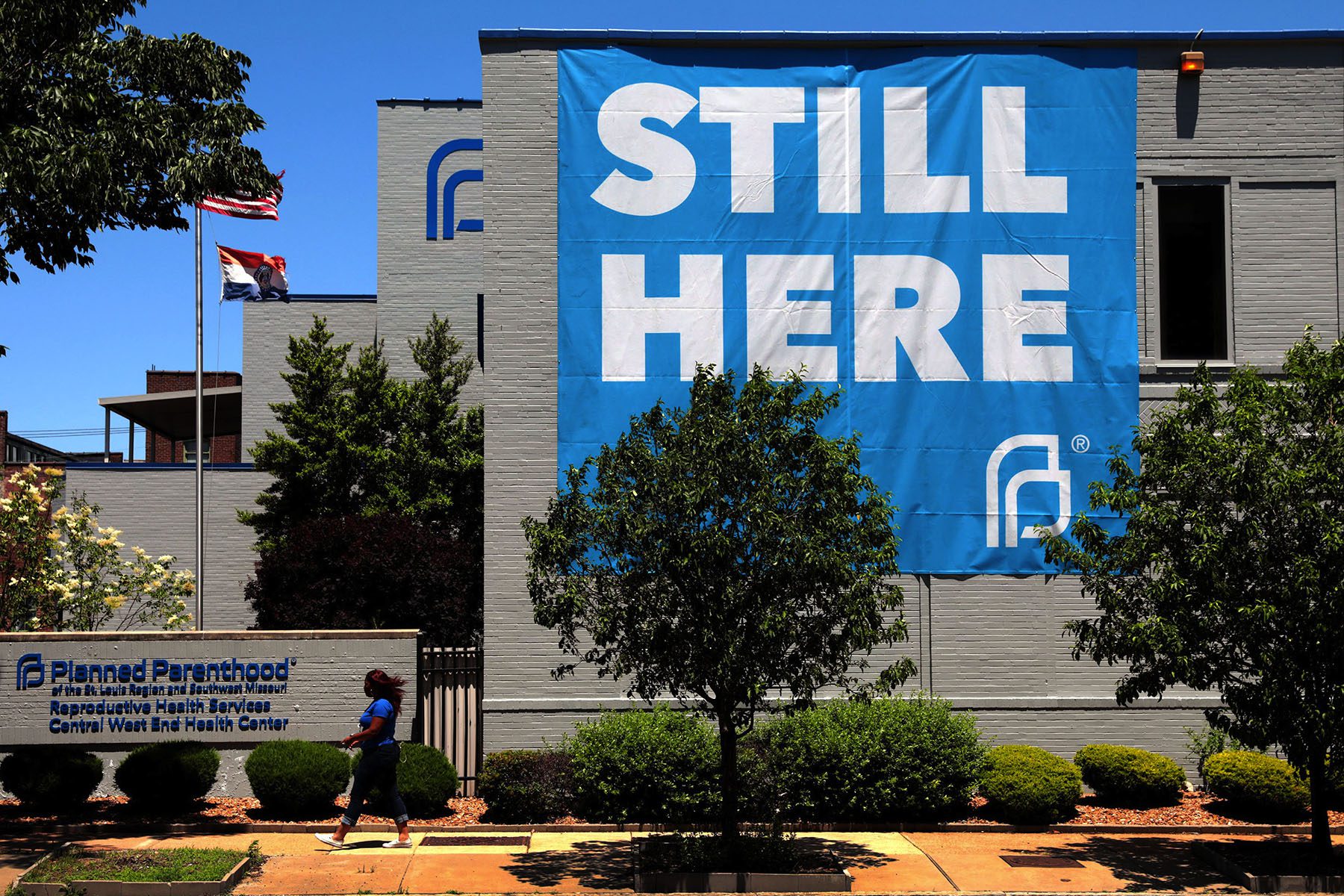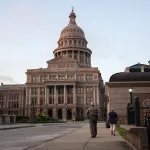Thirteen states are poised to become the nation’s abortion havens if the Supreme Court overturns Roe v. Wade and gives states the power to ban access to the procedure, according to a new analysis by the nonpartisan Guttmacher Institute.
The court is set to hear two major cases addressing national abortion protections, guaranteed by the 1973 case Roe v. Wade, which found that the U.S. Constitution guarantees the right to an abortion up until a fetus can live independently outside the womb. The first, with oral arguments scheduled for November 1, looks at a six-week ban from Texas. The second, scheduled for December 1, looks at a 15-week ban from Mississippi.
It’s not clear how or when the court will rule. Much depends on the nuances of any eventual decision. But conservatives hold a 6-3 majority on the court, and if they uphold one of the laws, it could lead to the elimination of Roe v. Wade’s abortion rights guarantee, meaning states are free to restrict or even ban access to the procedure altogether.
There are many permutations for how the court could rule. It could uphold the Mississippi ban but block Texas’ law. It could hold that states are allowed to block abortions at 15 weeks, but not earlier. Or it could issue a ruling that opens the door to states blocking abortions at six weeks, or even earlier.
Depending on the details of any ruling, people seeking abortions could have to travel hundreds of miles each way to end a pregnancy, the Guttmacher paper shows, adding to the burden of time and money and making abortions further out of reach for many people who are already struggling to afford them. If states interpret the court’s ruling as allowing all levels of bans on abortion, the impact would be particularly severe for those who live in one of the 21 states that already have laws in place to ban most abortions were Roe v. Wade to be overturned.
Some of those 21 states have what is called a “trigger law,” which would theoretically ban all abortions if the Supreme Court moves to overturn Roe v. Wade — though such a law taking effect is unprecedented, and legal scholars are divided over how this would actually work. Many also have passed laws bans banning abortion after six weeks of pregnancy. Most of those six-week bans are currently blocked by courts; Texas is the only one whose six-week abortion ban is being actively enforced, in large part because of its unique mechanism.
An additional five states — Florida, Indiana, Nebraska, Montana and Wyoming — do not currently have laws that would end abortion access, but, based on recent political activity, appear likely to enact such restrictions if Roe v. Wade is overturned, the paper suggests.
“You’re looking at the South, the Plains, the Midwest,” said Elizabeth Nash, who analyzes state policy for the institute. “We’re looking at a wide swath of the country with the real serious potential to ban abortion.”
Still, the impact could be vast. More than 36 million women of “reproductive age” — defined as ages 15 through 49, per the World Health Organization – live in those 26 states.
It’s not fully clear if all states on the list would necessarily enact new abortion restrictions. Florida, for instance, is on the list in large part because one of its legislators introduced a six-week abortion ban inspired by the Texas law, which outsources enforcement to private individuals via civil lawsuits —- a provision that the Supreme Court has cited in declining to block it. But Florida’s government has historically been hostile to abortion restrictions — this past year, state lawmakers tried and failed to pass a law that would have banned abortion after 20 weeks of pregnancy.
California, Colorado, Illinois, Kansas, Minnesota, Nevada, New Mexico, New York, North Carolina, Oregon, Pennsylvania, Washington and Virginia are listed as the 13 “destination states” — places that do not have abortion bans on the books and are not likely to immediately pass them, and that are closest to states that would likely ban abortion access if Roe v. Wade is overturned.
And in two of those states — Kansas and North Carolina – that status is tenuous. Both currently have Democratic governors who have blocked the state legislatures’ efforts to enact abortion restrictions. But Kansas’ governor will face reelection in 2022 and North Carolina will face an open gubernatorial election in 2024. Republican victories could open up both states to passing stricter abortion restrictions.
The Guttmacher paper models how far people would have to travel and to where under three different scenarios. The first analyzes the impact if all 26 states banned abortion after 20 weeks. The second analyzes what would happen if all those states passed a 15-week ban, following in Mississippi’s footsteps.
Both of those cases would affect a far smaller number of people than either a six-week or total ban; currently, most people seek abortions before 13 weeks. But for those people, the loss of access could be particularly meaningful. Often, people seeking abortions later in pregnancy have faced larger barriers in getting together the money and time for the procedure or have discovered health concerns later in the pregnancy.
The third scenario from Guttmaacher imagines all 26 states banning abortion access entirely.
If, for instance, all 26 of the states on Guttmacher’s list banned abortion, a handful — California, Illinois, Kansas, New Mexico and Pennsylvania — would absorb much of the shock, the analysis suggests. For 8.9 million people, Illinois would be the closest state with legal abortion access. Patients could theoretically come from as far as Louisiana.
“What does that mean to attempt to get people to abortion care when they’re potentially traversing three or four states at a time and going to be away from home for days?” Nash said. “We’re talking about millions of people in that situation.”
Currently, a medication abortion typically costs at least $550 — but depending on the state and stage of pregnancy, it can come out to much more. Days of lodging, car gas, plane tickets or child care add on to those expenses. Traveling three or four states instead of one, Nash suggested, means that the procedure will be relatively unaffordable not only for low-income people but also for many middle-class Americans. Most people who seek abortions already have at least one child, per data from the Centers for Disease Control and Prevention.
In Texas, whose six-week ban has largely eliminated abortion access, the implications are already emerging. Texans seeking abortions — and who have the time, money and means to travel — are flooding clinics in states such as Oklahoma, New Mexico and Arkansas. In Oklahoma, clinics are so overwhelmed that many people who live in the state can’t get appointments. They’re turning to abortion providers in Kansas.
“If states banned abortion tomorrow, these clinics would be facing a very difficult time to absorb the capacity,” Nash said.







